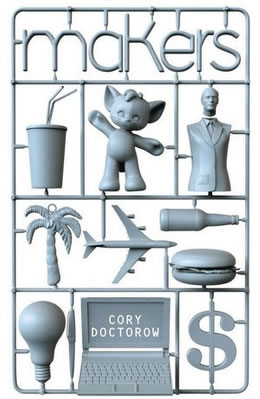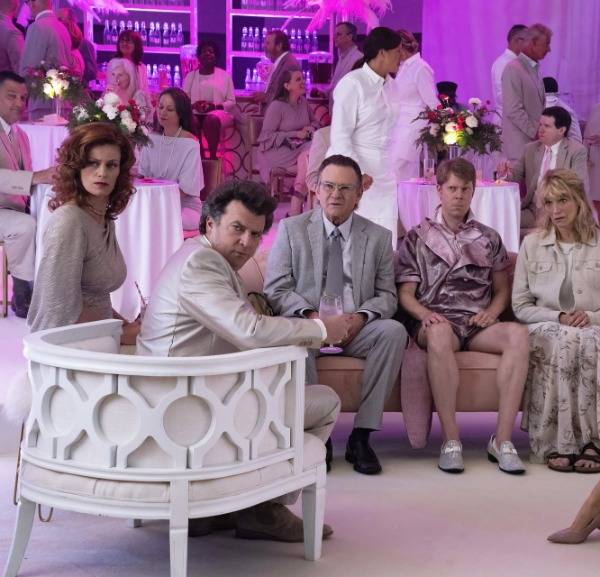 After the international success of his young adult novel Little Brother, which looked at the dark side of the post 9/11 surveillance state from the perspective of a West Coast teenager, Cory Doctorow has returned to adult concerns with a vengeance in Makers, exploring the nature of work, the limits of technology and the frailty of human relationships in a novel that will establish him as one of the significant writers of our technological age.
After the international success of his young adult novel Little Brother, which looked at the dark side of the post 9/11 surveillance state from the perspective of a West Coast teenager, Cory Doctorow has returned to adult concerns with a vengeance in Makers, exploring the nature of work, the limits of technology and the frailty of human relationships in a novel that will establish him as one of the significant writers of our technological age.
The story is grounded in the life-long friendship and working relationship of Lester and Perry, two archetypal hackers and “makers” whose creative tinkering with software, electronics and the debris of the consumer economy position them at the centre of an emerging creative culture in the near future. Their entanglement with journalist and blogger Suzanne Church and involvement with billionaire entrepreneur Landon Kettlewell make them influential and famous, and put them at the head of a movement that challenges business orthodoxy and brings them into conflict with a mega-corporation, forcing them all into hard choices and difficult compromises.
Anyone who has followed Cory’s work for the Electronic Frontier Foundation or who reads his journalism and the BoingBoing website he co-edits will recognise many of the concerns, from the dangers of embracing closed technologies that limit what you can do with them through legal or technological barriers to a visceral hatred of the yellow journalism that seems to have infected much of the coverage of movements like Creative Commons or free software. There are some very sharp digs at the way major corporations operate.
It would be wrong to position this as a science fiction novel, even though it is set in the future and deals with technologies that do not yet exist like the “imps” that animate Disney’s 3-D printers or the “fatkins” treatment that resets the metabolism of the morbidly obese to make them thin and muscular on ten thousand calories a day.
The technology, although fascinating and carefully thought through, provides a context and a motivation for the story, but the real emotional weight comes from the way the characters learn – or fail to learn – grow, fall in and out of love and try to find ways to stay sane and whole in a world that seems increasingly out of control and driven by forces that seek to limit creativity and constrain freedom. It also manages to wear its politics far more lightly than the more polemic Little Brother, although the brutality of the police when acting as agents for the enforcement of commercial interests is both shocking and plausible.
When William Gibson published Neuromancer in 1984 he described cyberspace in such compelling terms that it shaped the imagination of a generation of software developers who decided to build his world because they liked it so much. Something similar may well happen with Cory Doctorow, who has managed to channel his optimism and belief in the fundamental creativity of all humanity into a narrative that remains firmly grounded in well-imagined characters, carefully envisioned settings and technological developments that, though some way off, are clearly on the horizon. Those who are currently building 3D printers and intelligent search engines may well read Makers and decide it is more of a manual than a work of fiction.
In many ways this novel marks Cory Doctorow’s coming of age, breaking away from the more exotic SF concerns of his earlier work and finding a voice that will resonate with anyone who wonders where computer technologies are taking us and how society will be changed as a result. He has managed to explore these vital issues in a very human tale of love, desire, missed opportunities and redemption, one whose characters will occupy your imagination long after you turn the final page – or scroll to the final screen if you choose to read the eBook version, which Doctorow, true to his principles, is making available free.
Makers is published by HarperVoyager (also available free via tor.com)

